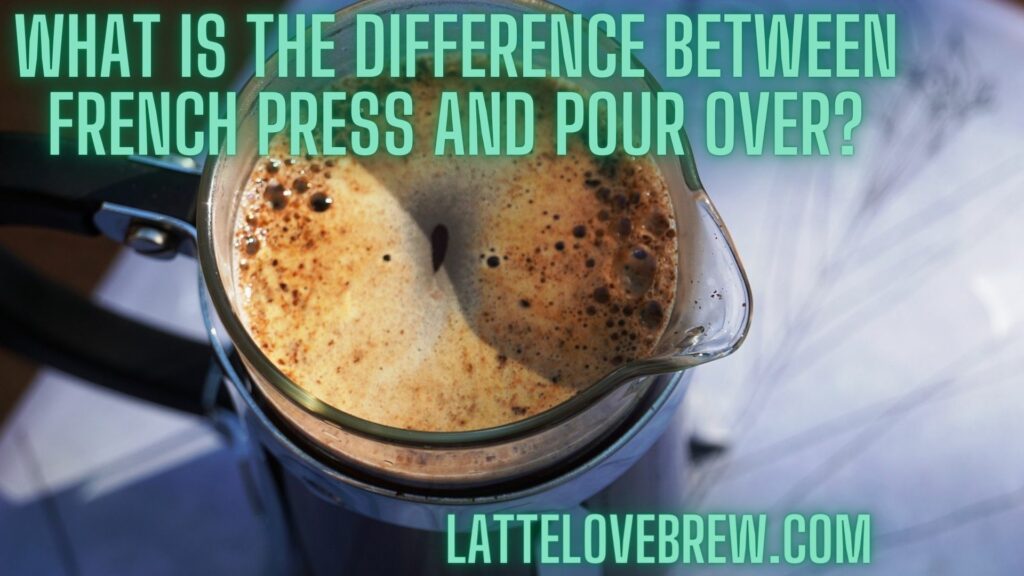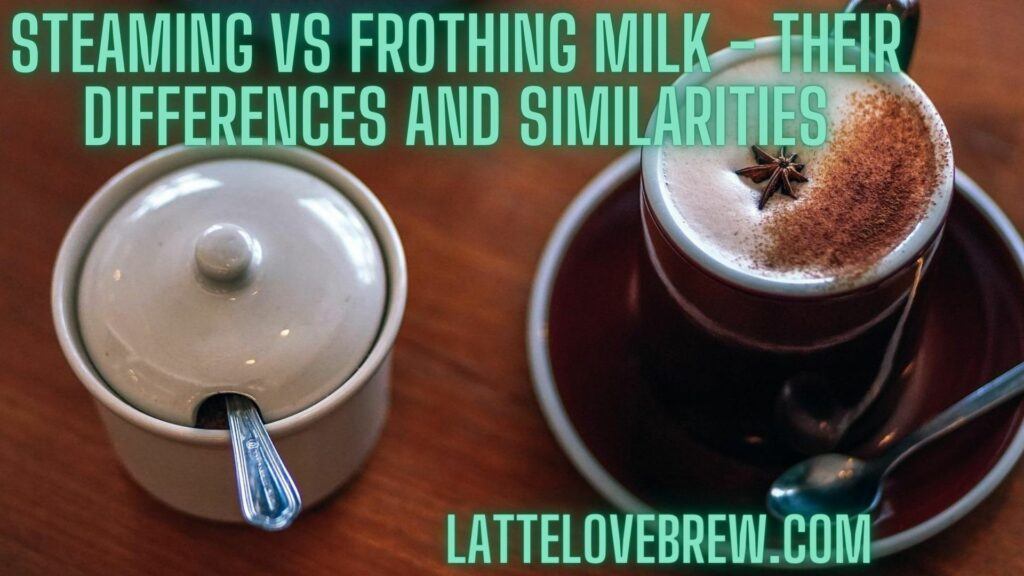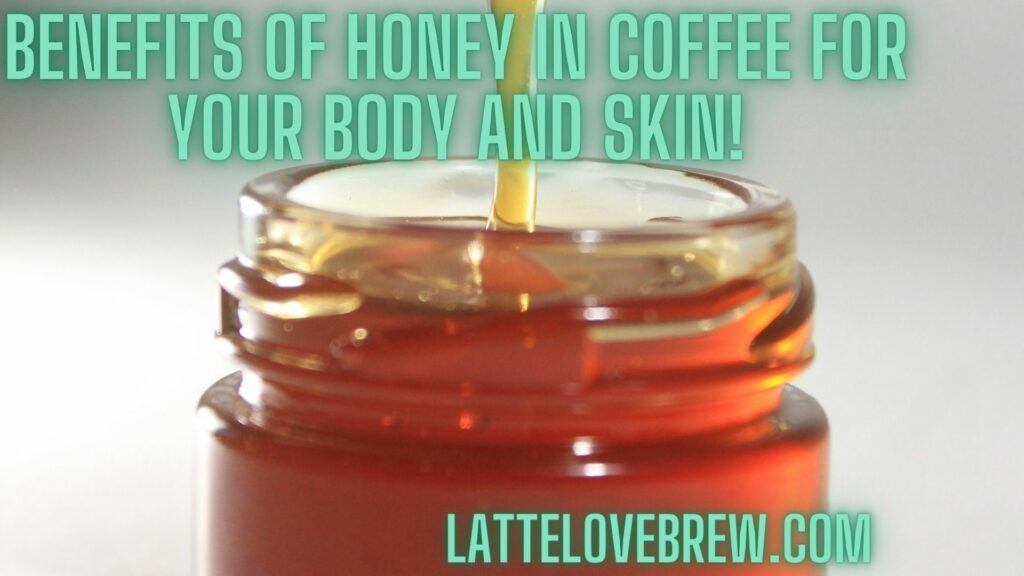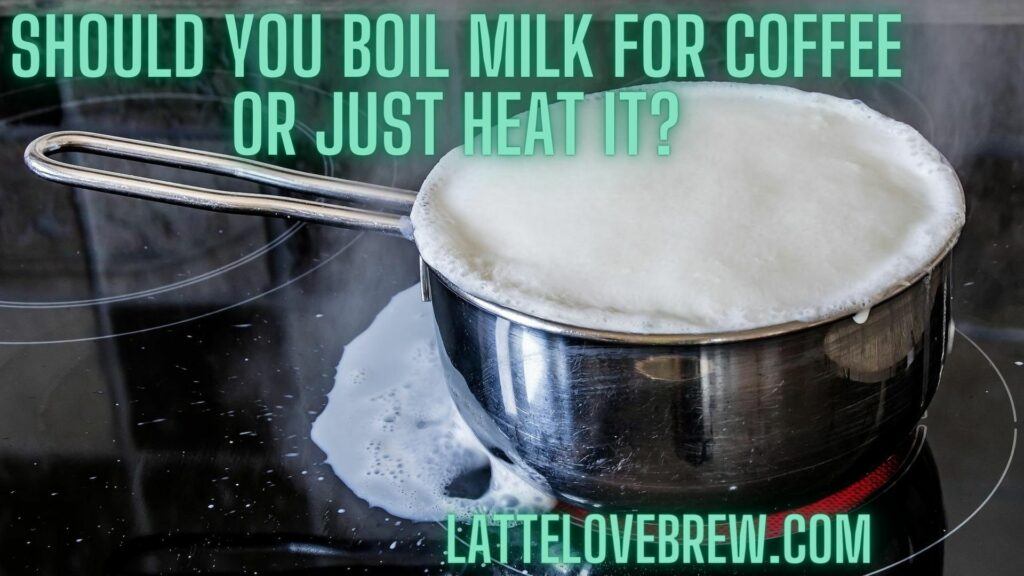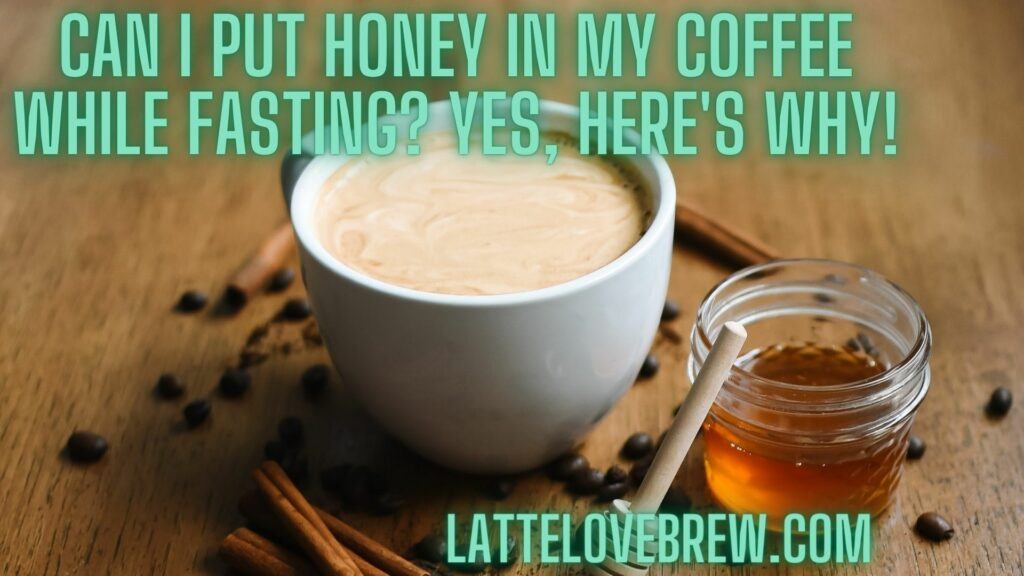Last updated on January 22nd, 2024 at 13:18
Many of our online coffee community members are asking us what is the difference between French press and pour over coffee?
With respect to so many questions I have dedicated this article to providing the answers that I have seen being asked on this topic.
To give you a quick answer it is not easy as these two brewing methods are very different.
Keep reading to find out the difference between these two rather great brewing techniques and when you should use each one and with what beans!
What Is The Difference Between French Press And Pour Over?
Table Of Contents
- 1 What Is The Difference Between French Press And Pour Over?
- 2 About Pour Over Coffee
- 3 About The French Press Coffee Maker
- 4 About The Chemex Coffee Maker
- 5 Is Pour Over Coffee Healthier Than French Press
- 6 Frequently Asked Questions About Difference Between French Press And Pour Over
- 7 Final Thoughts – Difference Between French Press And Pour Over
There is a difference between a French press and a pour over coffee. These two popular brewing methods are very different in literally every possible way and are best used for different roasts.
A French press is best and excels at extracting the deep dark flavors from a dark road bean while the pour over is steps up to the plate and shows its brilliance at extracting the intricate and delicate flavors from light roasts like a blonde roast and is also great with medium roasts.
Let’s talk about the two ways of brewing coffee, which will give you an idea of just how different they are.
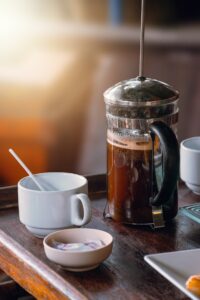
Read: Why is a French press better?
About Pour Over Coffee
The pour over coffee brewing process produces a coffee that has a reduced acidity when compared to the coffee brewed by French presses.
This lighter and brighter flavor profile is due to the process not extracting the natural oils from the coffee beans as a French press coffee maker can. It compensates for the reduced acidity by extracting more of the flavor notes that other brewing methods struggle or fail to extract, the difficult to extract.
The lighter and more floral and delicate notes a Pour over effortlessly draws them out and into your cup.
It is a technique to use to pull out the flavors that are unique to a specific region and origin and will help to train your taste buds to recognize the difference between beans from Tanzania, Sumatra and Burundi and the subtle unique difference between African, Latin American and Asian coffees.
If it is specialty grade or single origin beans that you are using, I strongly suggest that you use the pour over brewing method.
With pour over coffee, typically you start by using a cone shaped filter and fresh hot water. The type of filter that you use, which is entirely optional will influence the flavor of your coffee.
90% of coffee drinker use a paper filter with very few using a cotton cloth or metal filter.
The difference between them is not a lot, almost insignificant and is related to the amount of coffee oils that get into your beverage. Since pour over is not great at extracting the coffee oil the difference is minimal.
A metal filter will allow all of the coffee oils, the small amount that is extracted, to get into your cup of coffee. A paper filter will prevent all of them from making their way into your cup and a cotton cloth filter is the middle road between a metal filter and a paper filter.
About The French Press Coffee Maker
The French press, like a pour over, predates the espresso machine and has been around since the 1900s.
There are three parts to this class classic coffee maker, the carafe which is where you put your grounds and the water, a stainless steel filter and the plunger.
It’s a very easy and very simple full immersion brewing method where the coffee grounds are steeped in hot water for 3 to 4 minutes.
Due to the greater amount of time that the hot water is in contact with the coffee grounds, this method is much better at extracting the coffee oils, which makes it a better method for getting a deeper, stronger and bolder cup of coffee, which makes it a brewing method that is great for those dark roasts.
You can of course use a French press coffee maker for medium and light roasts, but you just won’t get as good a brew as a pour over.
Both a pour over and a French press coffee maker brew great coffee with an enjoyable and awesome taste, they are so different that the brew are very different.
One is light and bright with all the delicate flavors of the origin while the other is has bold and deep flavor notes. Which is best for you will depend on what kind of coffee you are brewing and the beans that you are using.
This is why coffee lovers own a variety of coffee brewing equipment – each brewing method creates a different tasting cup of coffee and may require different types of coffee beans.
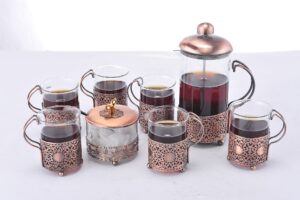
Read: Pour over vs French press
About The Chemex Coffee Maker
A Chemex pour over coffee maker is distinctive and stands out due to the hourglass shape and wooden collar.
If you are making a coffee with a Chemex pour over you need to use their own special filters as they are notable thicker, and need to be. If you use regular filters, or even attempt to you will end up with a weak and watery cup of coffee.
The thicker paper filters are designed to inhibit the flow of water and increase the amount of time your hot water is in contact with your coffee grounds and increase the extraction time.
The Chemex brewing method is the same as the pour over, hot water and gravity with your water being in contact with your coffee grounds and to dripping into your cup via a filter.
Like a regular drip coffee it uses a medium-coarse grind to coarse grind size.
Is Pour Over Coffee Healthier Than French Press
Coffee is said to be like a great love affair, it’s not always plain sailing; there are the good and the bad.
For sure coffee is healthy, this is undisputed by the thousands of independent research papers and peer review studies. Coffee of all roasts and brewing methods and the type of beverage is loaded with vitamins, minerals and antioxidants.
A pour over coffee is considered to be beneficial and better for your health than a French press due to containing less, literally no Cafestol when a paper filter is used.
Cafestol is a coffee oil that raises cholesterol and with pour over coffee containing less of it than a French press it has this health advantage over French press coffee.
Frequently Asked Questions About Difference Between French Press And Pour Over
Is Pour Over Or French Press Easier?
Between a pour over and a French press, by far the French press is the easier brewing method and requires less effort than a pour over. It is also, between the two brewing techniques, it has the quickest learning curve.
The Pour over method requires much more concentration and a higher skill level than the French press method.
Does Pour Over Coffee Taste Better?
The pour over coffee brewing method is capable and does, when extracted perfectly, extract more of the coffee solids than other brewing methods which means it does produce a better cup of coffee, one that is more flavorful than other brewing processes.
However,
it is a brewing process that requires time and effort and is best suited for light and medium roasts, particularly lighter roasts, as it draws out more of the unique flavors of the origin than other methods.
Read: Pour over Vs French press
What Is The Point Of Pour Over Coffee?
The point of pour over coffee makers and the reason for brewing with this technique is to get the best possible tasting cup of coffee and extract the full flavor from your expensive high quality specialty grade coffee grounds.
Coffee enthusiasts and coffee lovers enjoy this particular way of brewing as it produces high quality cups of coffee and enables them to control the temperature, strength, brew time, grind size and ultimately the taste and texture of the coffee brewed.
It is worth your time and effort to truly master this technique.
Why Is My Pour Over Coffee Bitter?
If your pour over coffee is bitter or overtly bitter it means your coffee is over extracted and has dissolved too much of the organic compounds that contribute to the coffee’s flavor. To fix this you need to adjust your technique.
Try the following:
- Use a slightly larger grind size.
- Reduce the temperature slightly.
- Focus on the contact time that the hot water has with your coffee grounds and try to reduce it by using a slightly faster pour rate while being careful not to flood your coffee grounds.
Make one adjustment to the brewing process at a time to find out where the error is.
What Coffee Is Best For Pour Over?
To get the best out of both your coffee beans and the brewing process, I advise that you use specialty grade light or medium roast coffee beans.
Great beans make great coffee, and a pour over is excellent at getting all the delicate and intricate flavors of light roasts and medium roasts into your cup.
Due to the roasting process, darker roasts have the nuances and flavors roasted out of the beans and while you can use them for a pour over you don’t really get any more benefit by using this technique over a French press of drip coffee for dark roasts.
Is Pour Over Coffee Hard To Make?
No, pour over coffee is not difficult to make. The brewing technique takes time and patience to master. It is just practice, that is all. I started off clueless as I had never brewed with this technique before.
It takes time, but not a lot of time. I started to make really great coffee after my 5th or 6th cup and mastered the technique after about 12 cups.
I encourage you to put in the effort. The real trick and focus is on the pouring technique and keeping a good even pour and not flooding your grounds.
It’s not rocket science!
Final Thoughts – Difference Between French Press And Pour Over
Congratulation on reading this far; you now know the difference between French press and pour over coffee and more importantly you know how to get the best out of each method, and which bean works best for the two techniques which will help you to get the best possible cup of coffee for both Pour over and French press coffee.
What do you prefer, which is it for you, French press or Pour over?
Join our online coffee community on Facebook/Meta and give us your answer with a coffee selfie with your brewing technique, press or pour! Feel free to share your own tips and tricks about both techniques and getting the best coffee.
We look forward to hearing from you.

